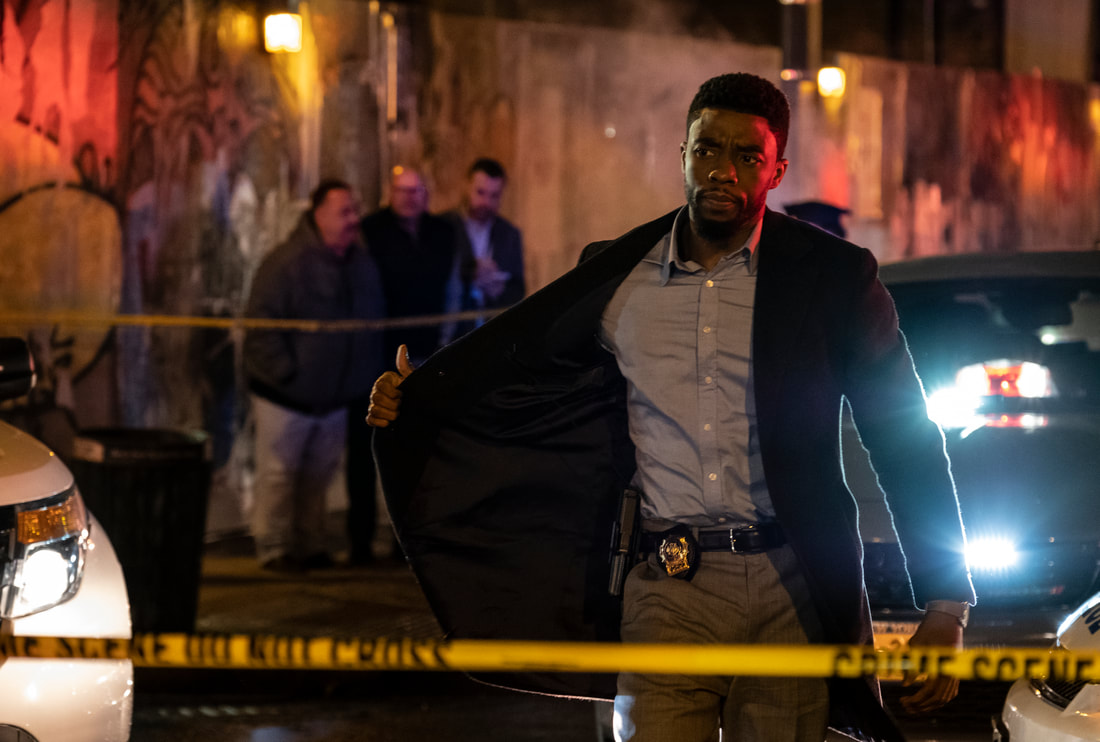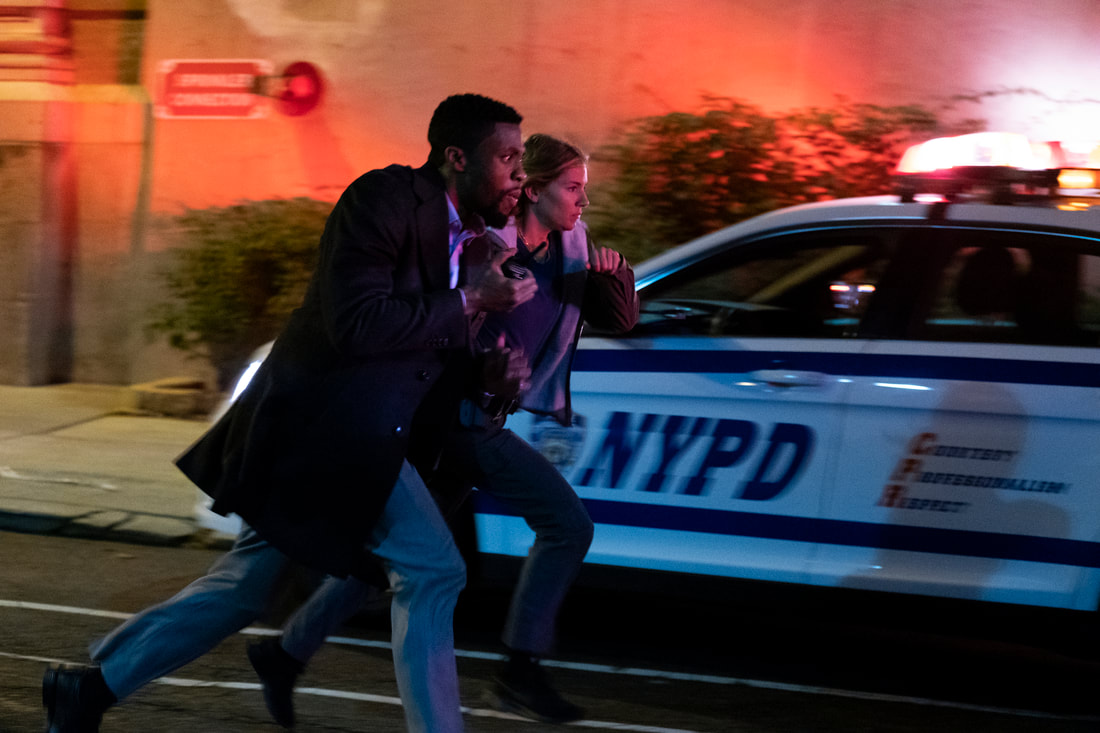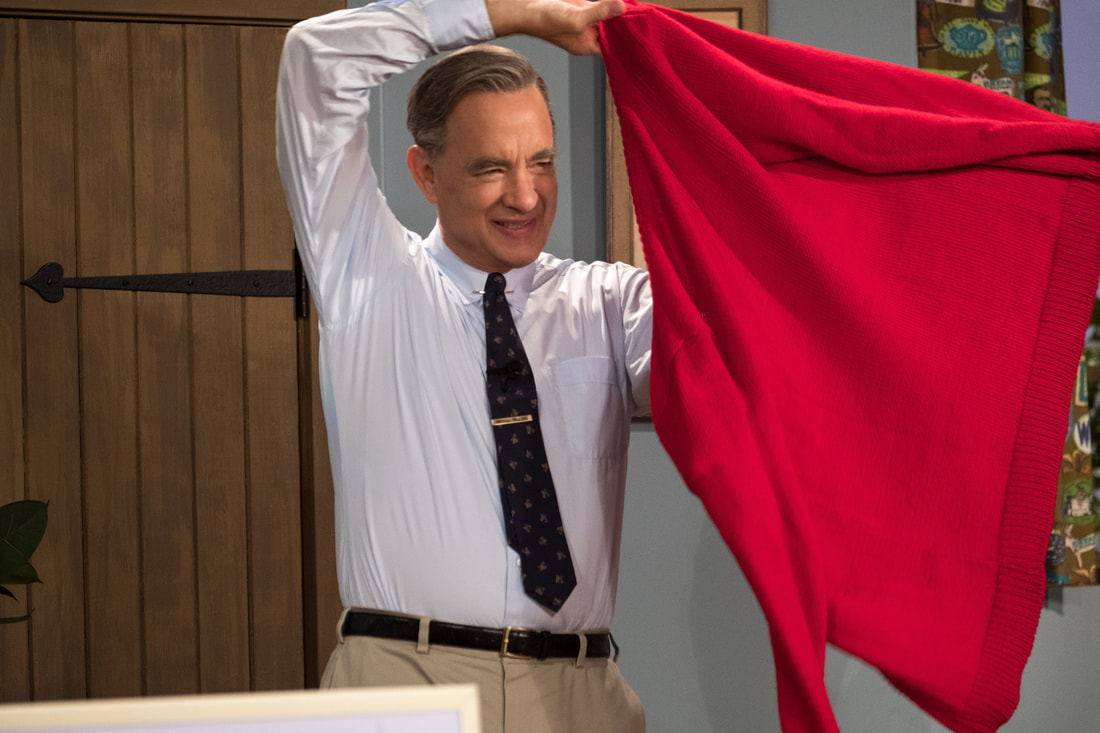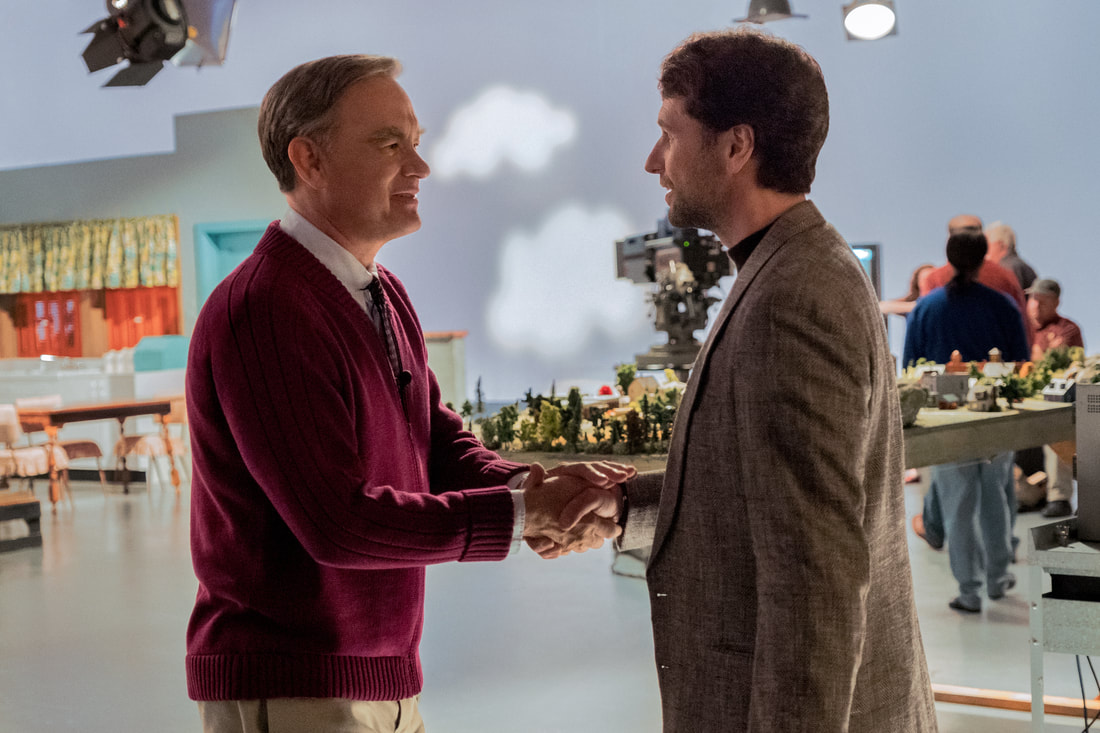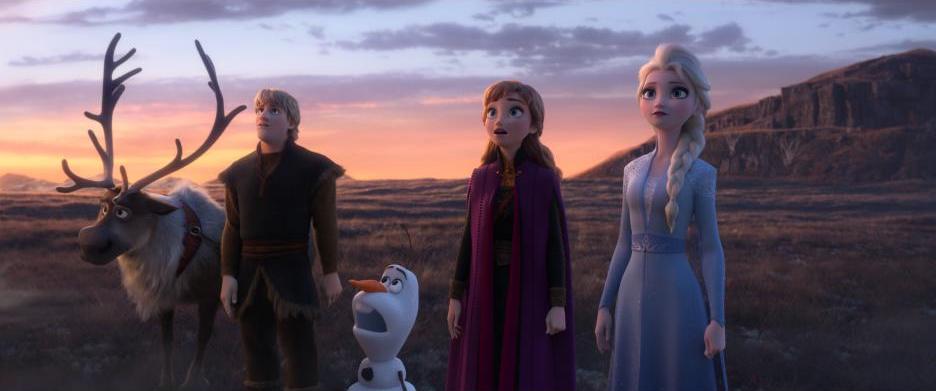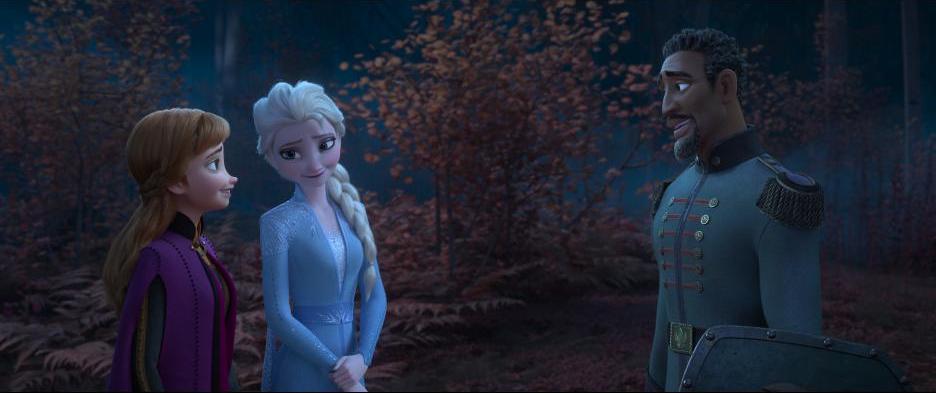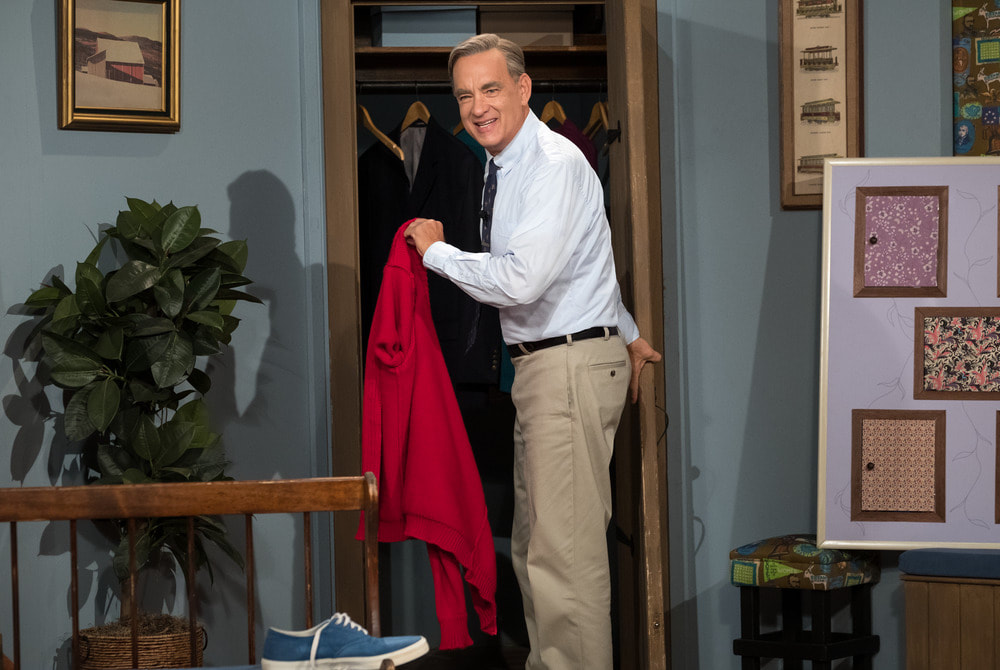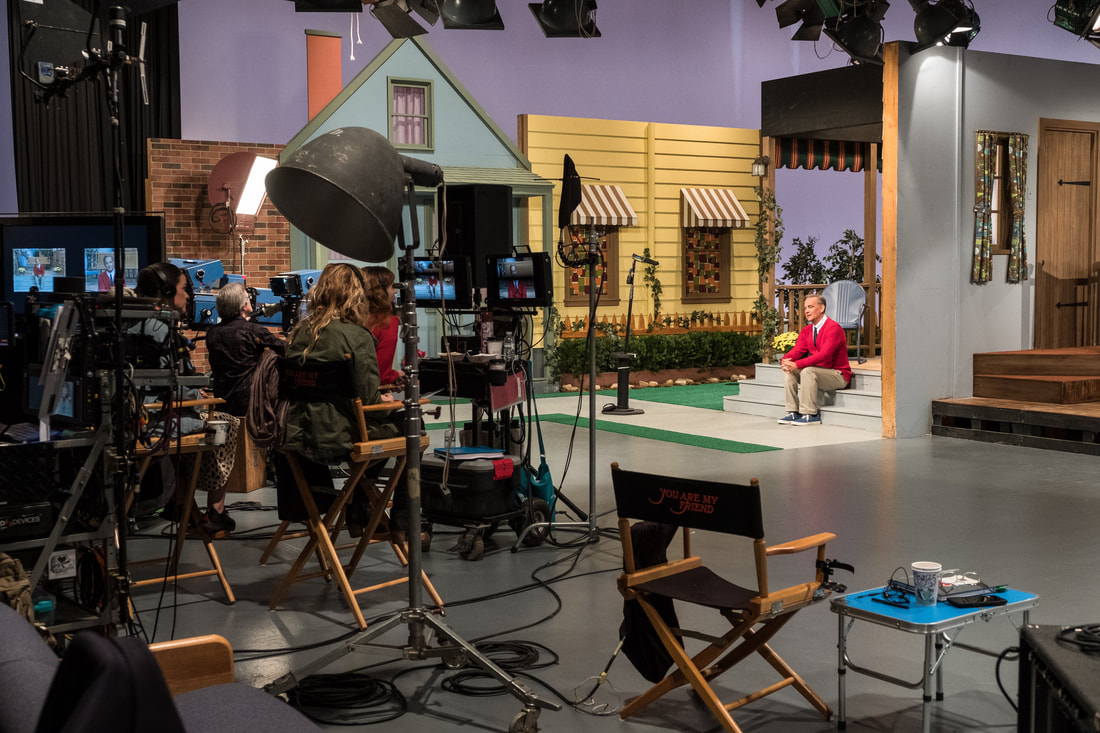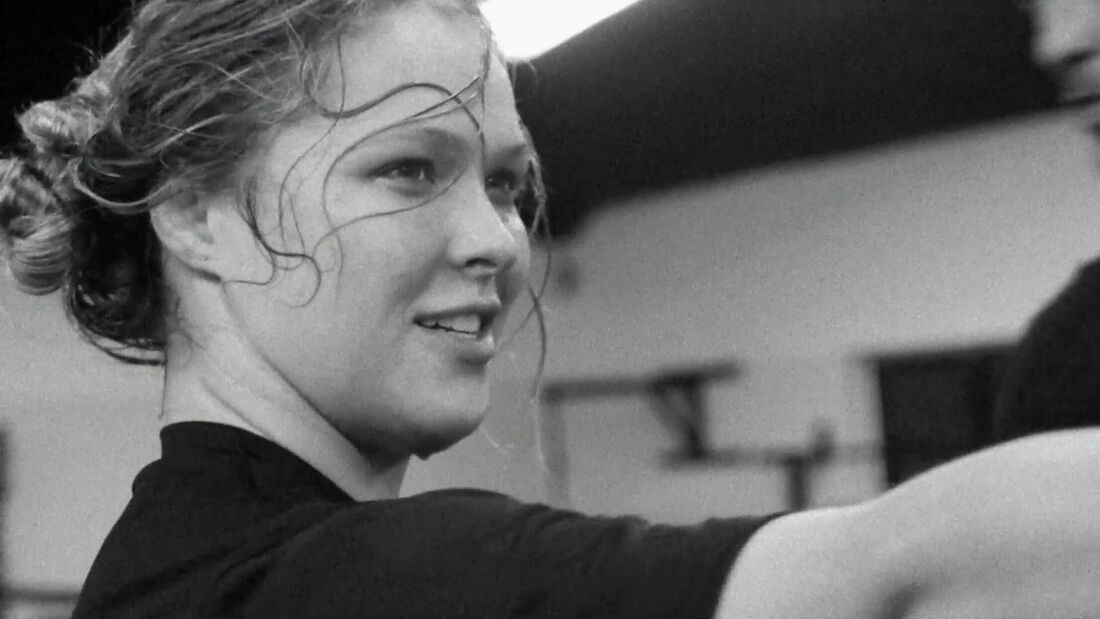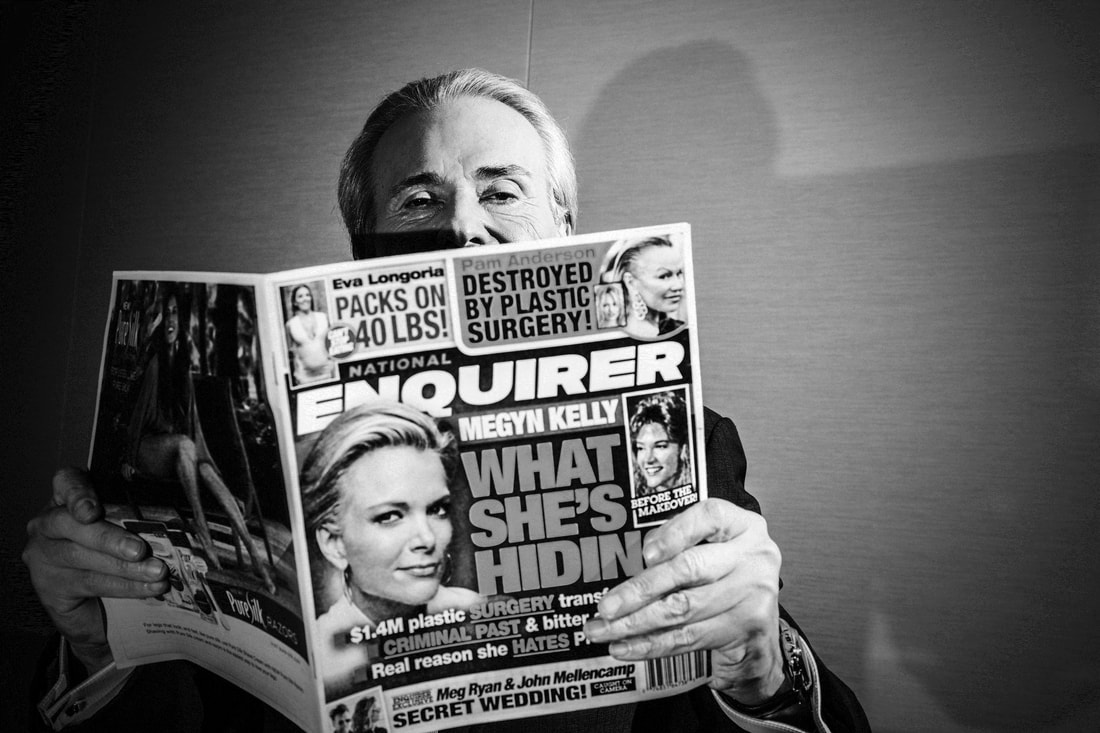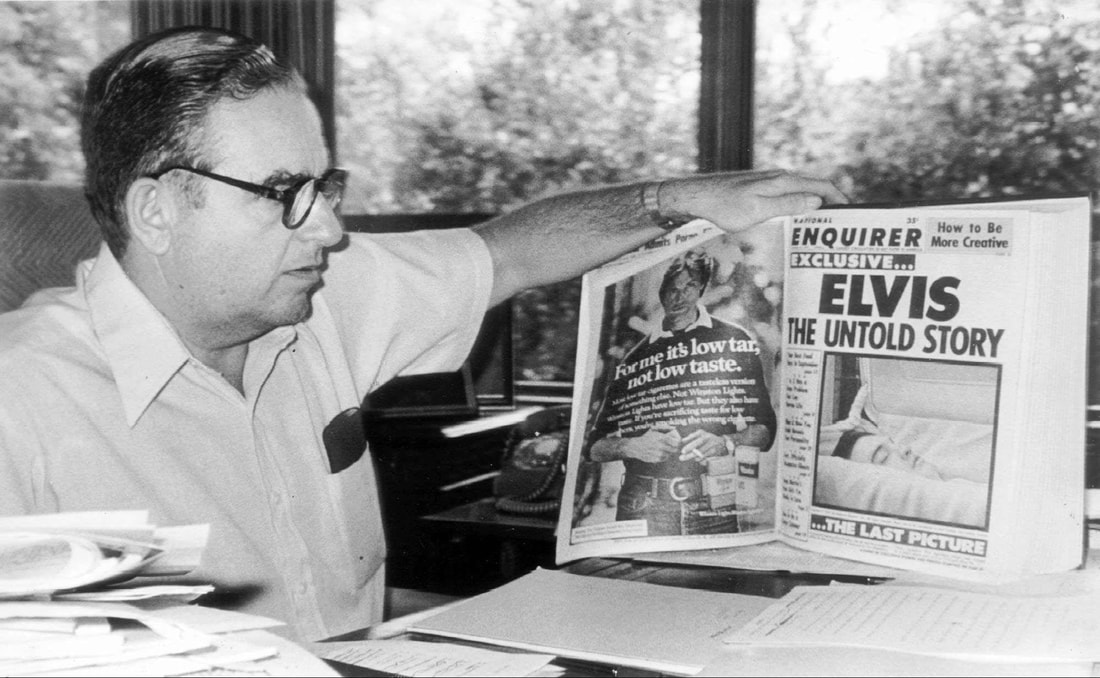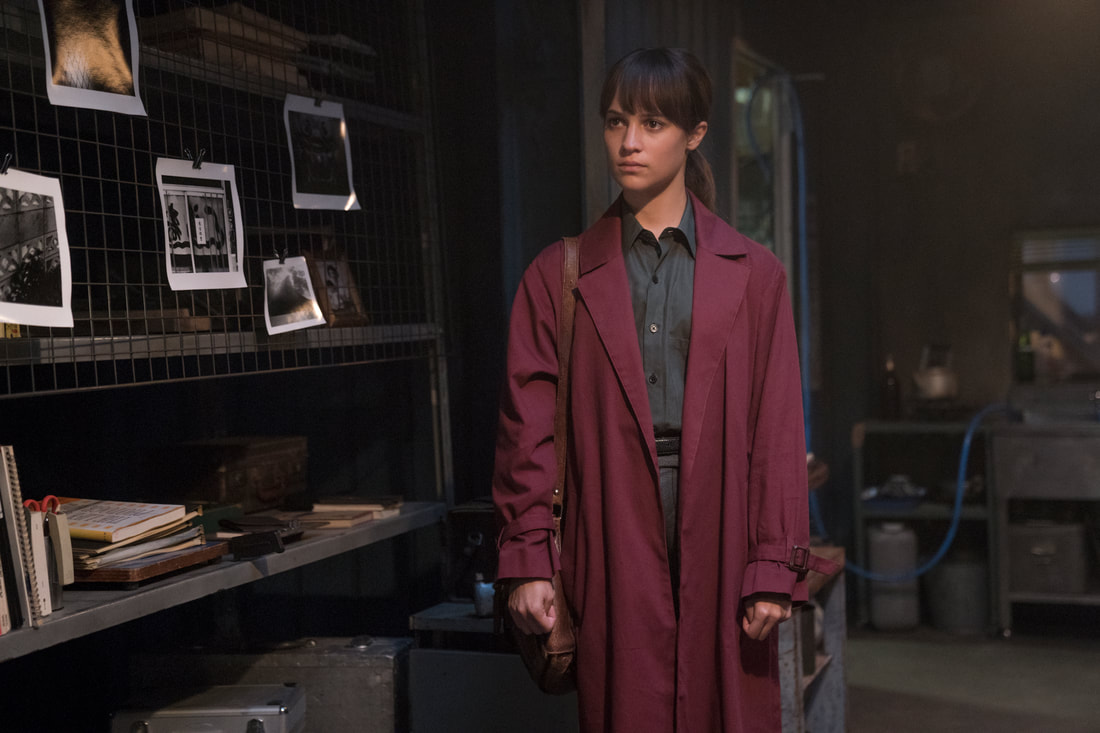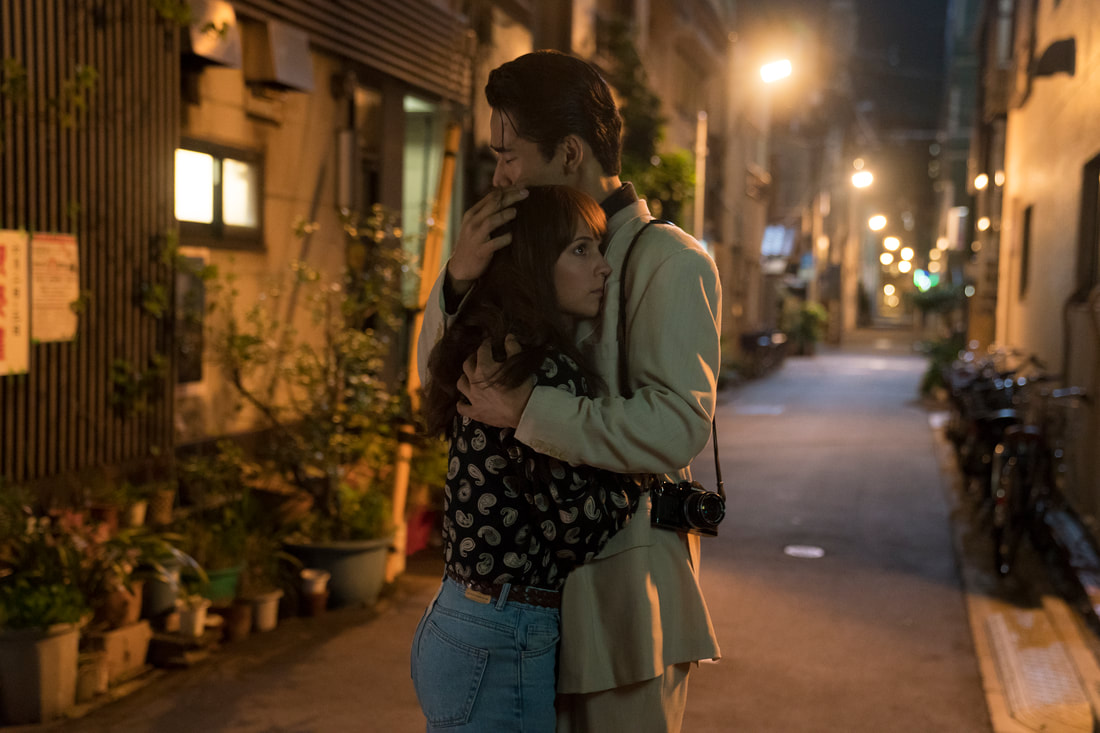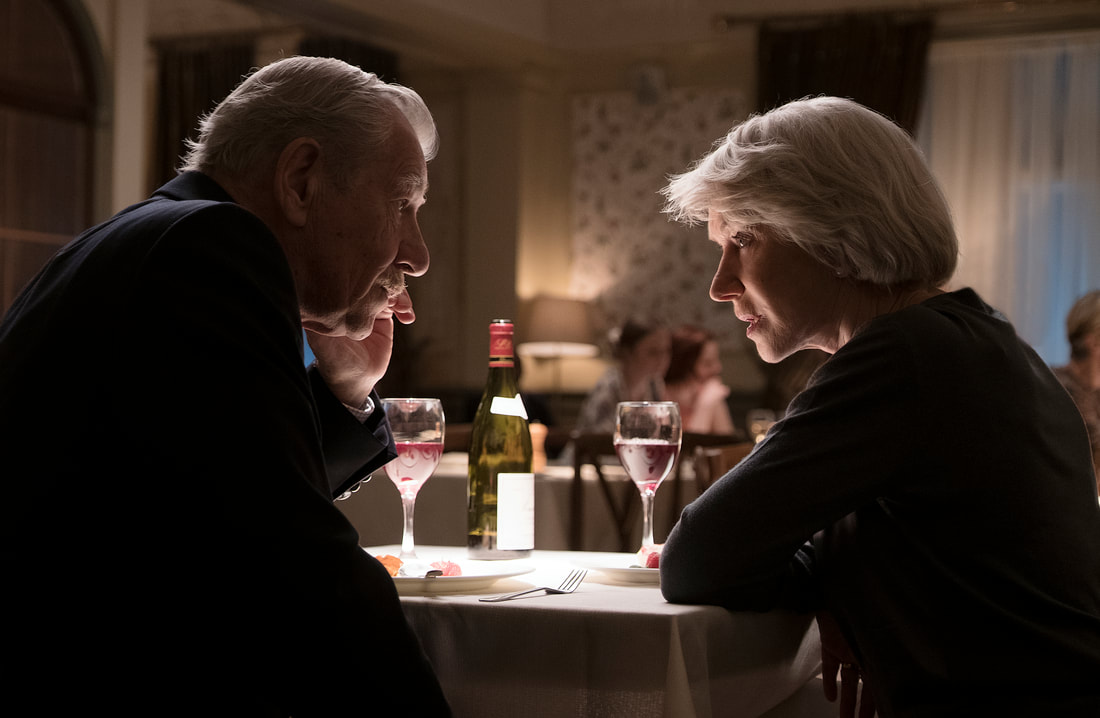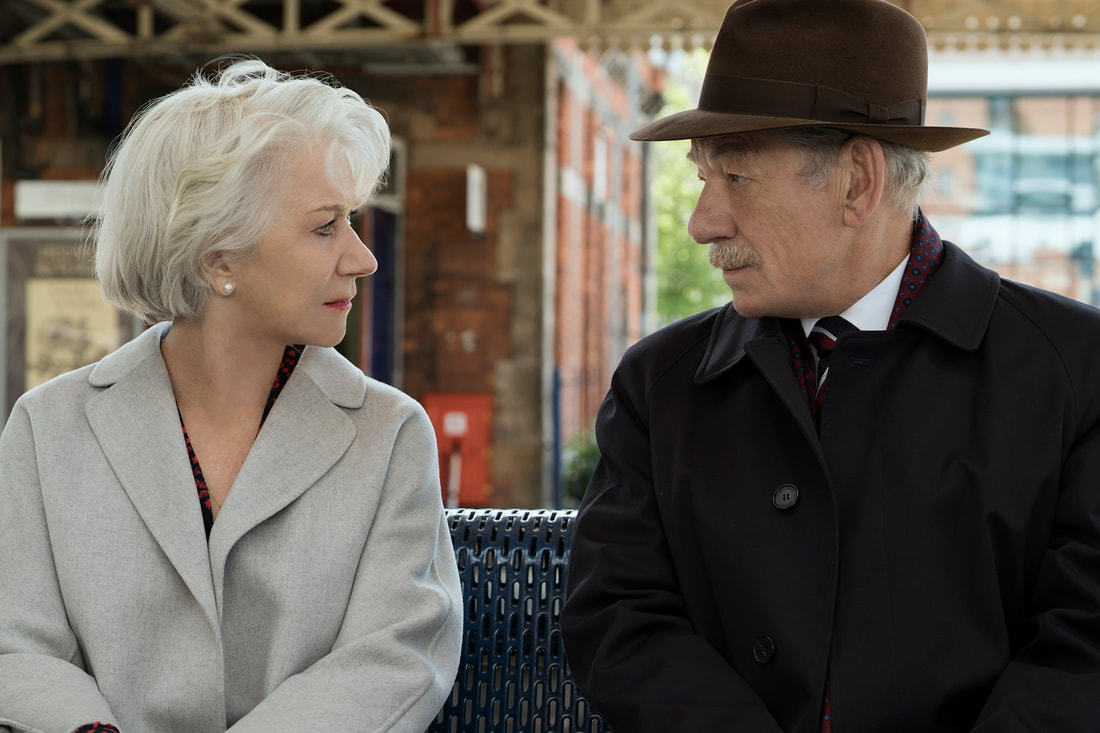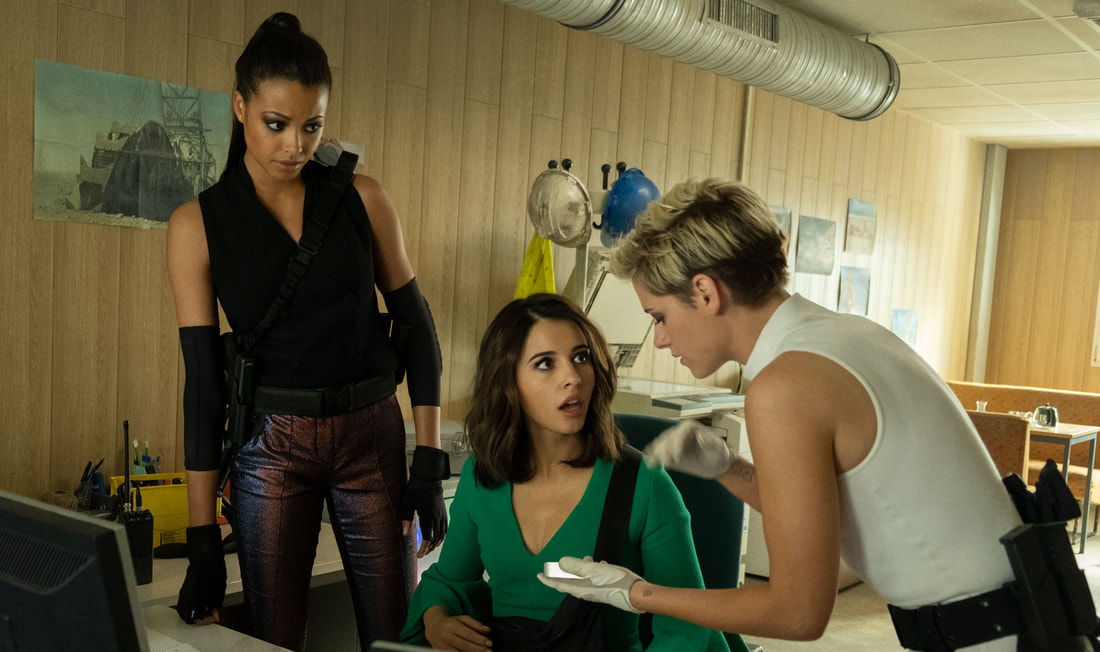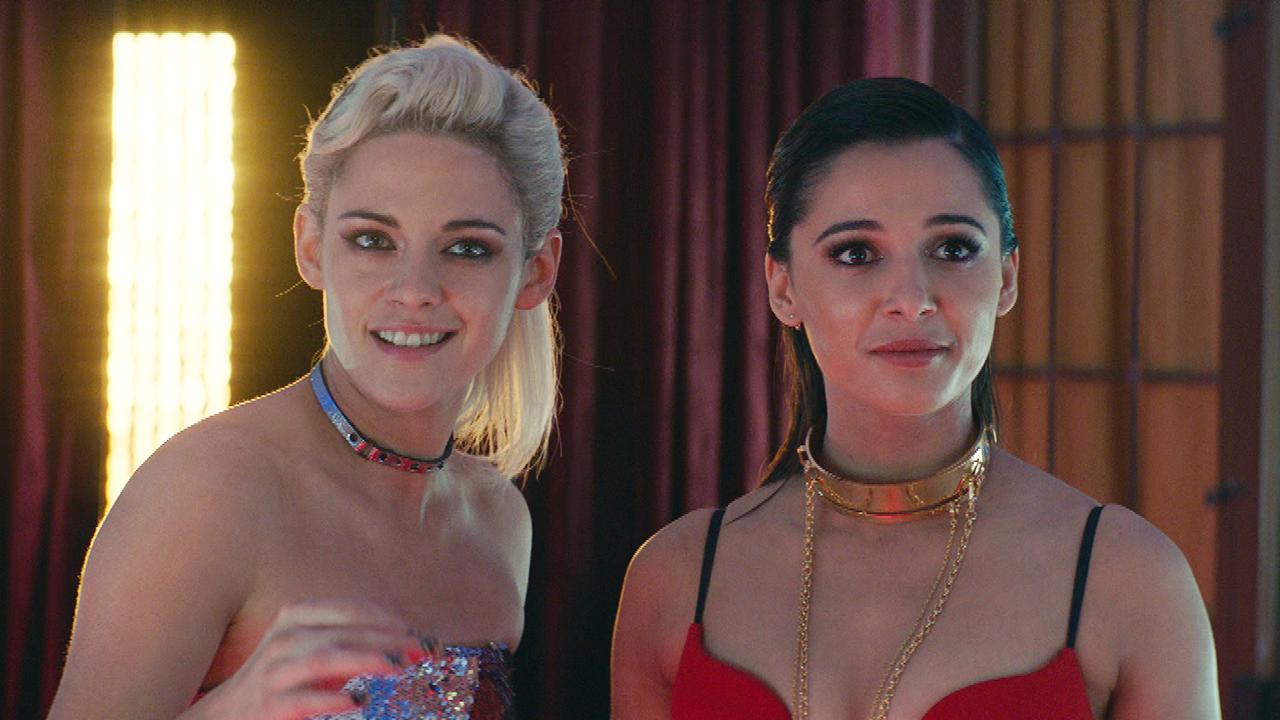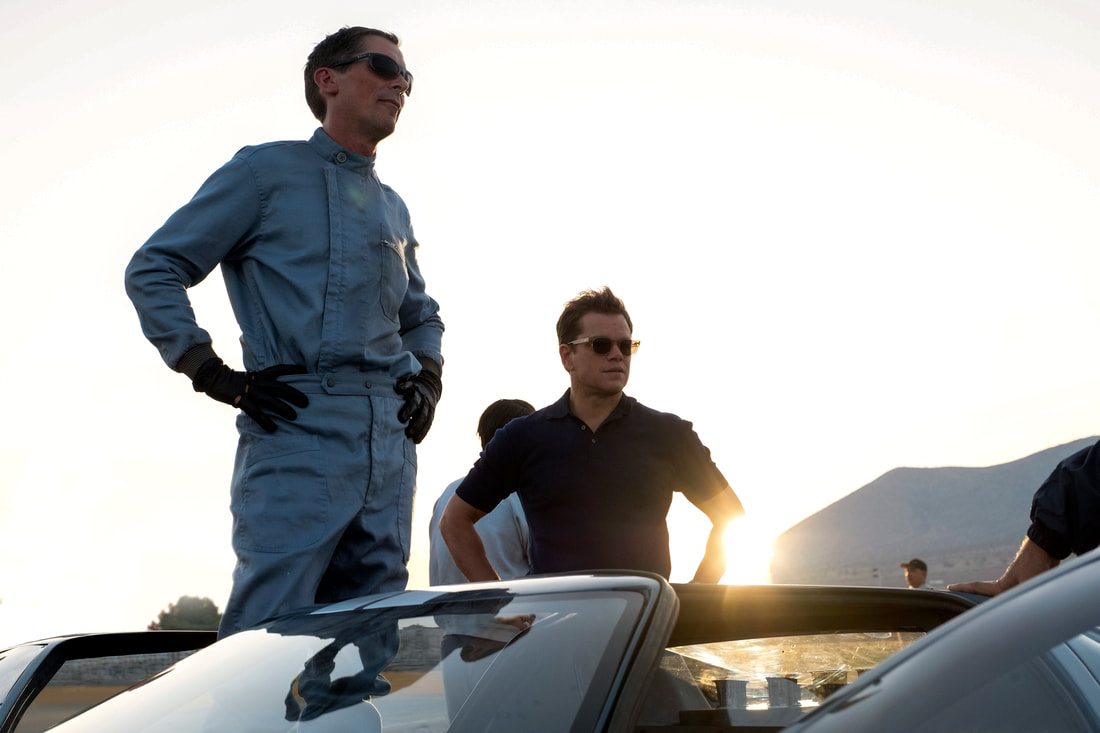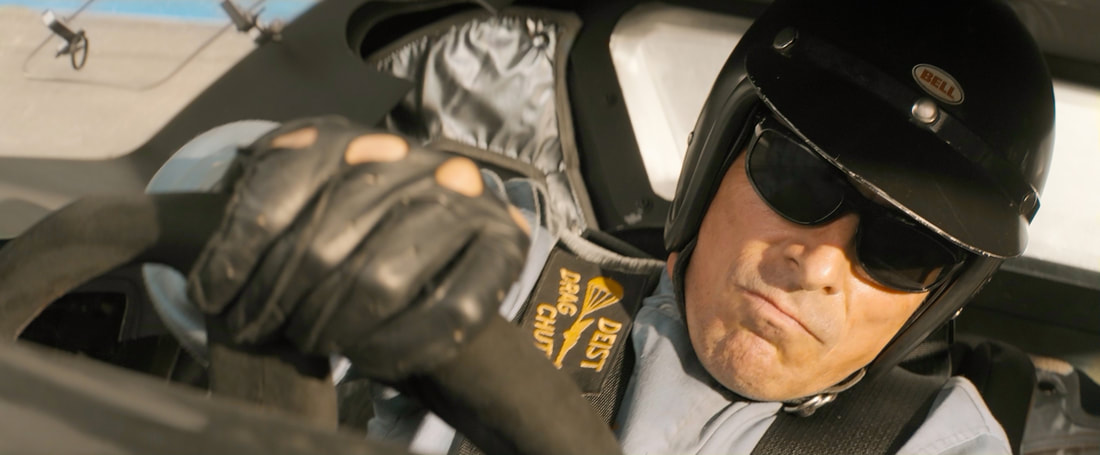|
Review by Camden Ferrell Starring Marvel star, Chadwick Boseman (Black Panther), 21 Bridges is a police thriller directed by Brian Kirk. It has a fairly standard plot, and it may stumble on its own narrative leaps, but this movie is still a really energetic and enjoyable film. This film follows NYPD detective Andre Davis as he hunts for criminals who killed eight police officers. In order to do this, Davis shuts down Manhattan island and closes it off while he embarks on a race against the clock to find the wanted men. This premise isn’t anything original at all. It may take the standard crime drama to relatively new heights, but it feels very familiar for the most part. The writing isn’t especially strong in this film, but it’s clear that wasn’t the point of the film. It’s full of cliché and tired dialogue, but thankfully this is overcome by the other elements of the scene. The film may come off as implausible, and it does seem very unrealistic at times, but the movie wasn’t trying to go for realism at all. The story itself is straightforward, and even though it has its twists and surprises, it is all mostly foreseeable. However, this doesn’t noticeably hinder the experience of watching the scene. Boseman leads this film, and he does an adequate job for what it’s worth. It’s nothing groundbreaking or particularly special, but it’s just enough to carry the film through its runtime. Stephan James (If Beale Street Could Talk) plays one of the wanted criminals in the film, and he gives a surprisingly good performance. His character isn’t well-developed, and he doesn’t have any standout moments in the first half, but James has some truly amazing scenes in the latter half of the film. His dynamic with the rest of the cast is fantastic, and he instills a lot of life into the film. What the movie lacked in complexity, it more than made up for with its execution. The blocking of the scenes was fairly apt, and it generated suspense like it was supposed to. This is one of those movies with constant action and kinetic energy, and that makes it such an easy film to breeze through and enjoy. It’s a well-paced movie that doesn’t feel overlong until its final act.
However, the denouement of this film really minimizes what worked so well before it. The movie goes for a cliché twist that comes off as derivative and boring. It isn’t surprising, and it doesn’t give the film as much narrative depth as it thought. It may make some thematic sense, but it really bogged down an otherwise fast-paced film. This movie also features many themes that are important today. It tackles themes of morality, corruption, economic struggles, and compassion. It isn’t revolutionary or particularly loud with what it says, but it is still there. It is mostly muddled by the constant action and shootouts on screen, but the attempt is present. 21 Bridges makes for an exciting time at the theaters this weekend. In a weekend with Frozen II and A Beautiful Day in the Neighborhood, this movie should be able to provide some R-rated thrills for an adult audience. 21 Bridges is in theaters November 22nd. Rating: 3.5/5
0 Comments
Review by Dan Skip Allen Fred Rogers was and still is an icon to many who grew up watching his show on PBS as a child. He saw the good in every one and inspired so many to be better than they were. On his show, he discussed divorce, racism and war — subjects thought to be taboo around children. Nothing was off limits to him, as he brought these topics and many more up as often and as subtle and compassionate way as possible. He did many many shows during his time on the air which inspired millions of kids and adults to sing the famous song "It's A Beautiful Day in the Neighborhood". This film is about one man of the thousands that met Fred Rogers during the tenure of his show. Matthew Rhys (The Americans) portrays Lloyd Vogel, a writer for the magazine Esquire. He is tasked to write an exposé on Mr. Rogers. In the process he gets more than he bargained for. Mr. Rogers, played by Tom Hanks, turns the tables on him. If ever there was someone to embody Fred Rogers more than Hanks, other than Rogers himself, it would be shocking. He is perfectly cast as this beacon of hope and happiness. Hanks will surely garner some Oscar consideration for Best Supporting Actor for this incredible turn. The facial ticks and the movements are spot on, as well as his piano playing and singing. Hanks truly is the total package as Mister Rogers. A Beautiful Day in the Neighborhood is based on Fred Rogers real life friendship with journalist Tom Junod. This is more of the Rhys character's story than Fred Rogers's. His family situation is nothing to shake a stick at. Anyone can relate to the difficulties of marriage, fatherhood, stress at work and parents we wished we didn't have. I for one sure as hell can. This story was like looking in a mirror at my own relationship with my father: how I still don't forgive him for what he did to my family when I was a child. It hit me over the head like a ton of bricks, and then of course I started turning into him, making me very mad at myself. Fred Rogers helps us see the best in ourselves and in others. It was a very emotional scene when Vogel realized he had it all wrong. Mr. Rogers has that effect on people, and that is what makes this film so effective. Marielle Heller is coming off of a big hit with last year's Can You Ever Forgive Me? starring Melissa McCarthy in her Academy Award-nominated role. Setting films in a past decade seems to be her thing, her last two films set in the 80's and her directorial debut in the 70's. These films aren't your typical period piece films, but she knows how to make them work around the context of the script and story she's telling. A Beautiful Day in the Neighborhood is shot in the style of the TV show, but with very good editing. Yet she also switches back and forth to a more modern style, creating a sense of contrast within the film. That is one of the most fascinating things about this movie: the style can sometimes change mid-scene, but it all works in the end.
Leave it to Mr. Rogers to make audiences cry again this year like they did last year for Won't You Be My Neighbor?, the biographical documentary on the entertainer. Although film got snubbed at the Academy Awards last year, the chances of the Academy showing no love for Mister Rogers again is slim. Tom Hanks is the best shot at Oscar gold this film has. With any justice he will get that Best Supporting Actor nom he deserves. Matthew Rhys may sneak into the Best Actor race as well, and a Best Adapted Screenplay nomination wouldn't be out of the question either. This film is a love letter to Fred Rogers and his TV show, but it's also a tale loss and enlightenment. So many lives have been affected by this wonderful man, and this is the story of just one of them. Maybe by watching this film you might be affected as I was. This is a deeply profound film in more ways than one. A Beautiful Day in the Neighborhood opens in theaters on November 22. Rating: 4.5/5 Review by Sean Boelman Frozen II, the follow-up to Disney’s 2013 smash hit, is hitting theaters just in time for families to enjoy it for the holidays. Unfortunately, fans of the original may be disappointed by the lack of infectious energy in this film, but as expected, the filmmakers deliver one of the most visually gorgeous animated movies of the year. Perhaps the biggest issue with this film is that the story feels like an obligation rather than a necessity. The original’s arc was pretty cohesive and satisfying, though it did leave plenty of room open for a sequel to take the characters on another adventure. However, where this movie falls flat is that this adventure seems to be a slave to the world in which it is set. Rather than giving audiences what they want — another fun journey with Elsa and Anna et al. — the script is preoccupied with answering every question left by the original. Additionally, the film contains multiple subplots, and it can’t seem to juggle them all effectively. Some of them, such as the one involving Kristoff trying to propose to Anna, are quite compelling and offer some of the most effective and funny moments in the movie. Yet despite the fact that these character-driven storylines are where the film’s strengths lie, a majority of the runtime is spent on the main plot further building the mythology of the universe in an uninteresting way. That said, the most disappointing thing about the movie is that the music isn’t particularly good. The score by Christophe Beck is solid, but the songs from Robert Lopez and Kristen Anderson-Lopez are lacking. Whereas the music from the first film was musically complex but a tad annoying, the songs from this movie are simply forgettable, with one or two exceptions. Even “Into the Unknown”, the key song, is only impressive in the end credits version performed by Panic! at the Disco. If there is one good thing about the script, it is that it gives a greater arc to some of the supporting characters from the first film. Elsa’s arc was basically completed, so the sequel spends a lot more time developing Anna and showing her growth. This is a bit of a lose-lose situation, though, because while it does give more development to a different character, Anna simply isn’t as fascinating as Elsa, if only because she doesn’t have any powers.
The returning voice cast obviously seems to have enjoyed getting to return to their roles, their enthusiasm going a long way in making the movie more enjoyable. Idina Menzel and Kristen Bell bring a lot of emotion to their performances as sisters Elsa and Anna, and their chemistry together is wonderful. Josh Gad is just as funny as ever as the comedic relief character Olaf, and Jonathan Groff is also very funny this time around. The new additions to the cast, such as Sterling K. Brown and Jason Ritter, aren’t as well-used, but are still a joy when they are in the film. Of course, the movie contains the same level of wonderful and extravagant animation that audiences have come to associate with the Disney name. Some of the shots in the film are absolutely breathtaking, especially those during the scene set to “Show Yourself”. While the dark and moody nature of the movie doesn’t work quite as well as the bright and bouncy visuals of the original, it still manages to be quite aesthetically-pleasing. Not quite a total miss, but lacking a lot of what made the original so successful, Frozen II doesn’t take the universe in the direction in which it needed to be going. Though there are still some good things to be found in the film, it is unlikely to be as widely beloved. Frozen II opens in theaters on November 22. Rating: 2.5/5 A BEAUTIFUL DAY IN THE NEIGHBORHOOD -- An Uplifting Tale of What to Do with the Mad That You Feel11/18/2019 Review by Sean Boelman Inspired by an Esquire profile written by journalist Tom Junod, A Beautiful Day in the Neighborhood is a new drama cashing in on nostalgia for the children’s television show host Fred Rogers. Although those looking to learn more about the entertainer’s life may be unsatisfied, director Marielle Heller delivers an experience that captures what Rogers stood for more perfectly than any biopic ever could. The film follows a cynical journalist as he is assigned to write a profile on Rogers, only to find himself and his outlook on life affected in ways he never would have expected. The script by Micah Fitzerman-Blue and Noah Harpster is frequently unorthodox and unafraid to subvert the expectations of the audience, giving the movie a very refreshing feel. If the film does commit one sin, it is that it sometimes leans a bit too heavily on the sentimentality. The best moments are when the script really emphasizes the idea of childhood fantasy and how Mister Rogers had the almost magical ability to let people relive that feeling. Other scenes, in which the movie feels like it is trying to be a tear-jerker, are effective, but also much more conventional and lack the infectious sense of wonder. Audiences will surely be wiping their tears away many times over the course of the film, some earned and some unearned. Many of Rogers’s speeches contain something so heartwarming and honest that viewers will be in awe of how well Heller and crew were able to capture his spirit on screen. Although some of the best scenes were already shown in the trailers, they will still be quite impactful when shown within the greater context of the story. One of the most intriguing things about this movie is that it does not present Rogers as the protagonist, but rather, as a mythic-like guide who leads the protagonist on his journey of self-realization. The protagonist’s arc, while relatively obvious from the onset of the film, is extremely compelling, taking the beats of an average redemption arc and somehow making them feel even more heartfelt.
Matthew Rhys is phenomenal as the journalist whose heart must be warmed over the course of the movie. Despite the fact that audiences won’t know much about this character going in and will likely care more about seeing Mister Rogers, Rhys manages to elevate the material even further, making the character super sympathetic. Of course, as one would expect, Tom Hanks’s turn as the minister-turned-performer is scene-stealing, capturing all of the iconic mannerisms to a pitch-perfect level of detail. Visually, Heller’s style that was evident in her previous two films carries over in a way that is even more refined. Small but complex touches to the way in which the movie is structured, such as transitions taking the form of a crane through a miniaturized neighborhood, really help absorb the audience into the world of the film. Additionally, the recreations of Mister Rogers’ Neighborhood, thanks to both Hanks’s performance and Heller’s direction, are absolutely spot-on. A Beautiful Day in the Neighborhood may not be what audiences expect, but it is what they have always wanted to have. Encouraging viewers to make the most of their beautiful day, this is the type of uplifting crowd-pleaser that Rogers would have been proud to see. A Beautiful Day in the Neighborhood opens in theaters on November 22. Rating: 4.5/5 Review by Sean Boelman Hoping to give fans a glimpse into the behind-the-scenes life of the famous wrestler and MMA fighter, The Ronda Rousey Story: Through My Father’s Eyes is a new sports documentary offering a biography of the athlete, albeit with a more personal touch. However, despite the wealth of the filmmakers had at their disposal, this ultimately comes across as a bland attempt at making a celebrity seem more “down-to-earth”. As one would expect, the film explores Rousey’s rise to success and the various obstacles she has faced along her journey. A particular focus is given in the movie to Rousey’s relationship with her father, who died when she was young and played an integral role in her desire to become an athlete. As one of the world’s most famous and talented fighters competing today, the story of how she got to this level is certainly going to be of interest to her fans. One of the biggest problems with this film is that it is unable to feel deep enough to make the audience identify with the subject on a deeper level. Although fans are likely to have a pre-existing connection with Rousey, other viewers are unlikely to find themselves particularly moved by what they see in this movie, as it fails to provide any insight into her life or career beyond the superficial. As the title implies, the film’s emotional crux comes from Rousey trying to live her life in a way that would have made her late father proud. While this does humanize Rousey and make her story feel a lot more sympathetic, it isn’t always used effectively. Some of the interviews in which Rousey is reflecting on her life and thinking about her father end up feeling quite artificial, as if they exist for the sole purpose of tugging at the audience’s heartstrings. On a technical level, the movie feels like it was made decades ago, the visuals looking like they were shot and edited on technology that has long been obsolete. In the beginning of the film, Gary Stretch, who also narrates, explains how he was drawn to Rousey’s story when he became friends with her. What viewers will soon come to realize is that, no matter how interesting the story is, Stretch does not have the ability to tell it in a cinematic way.
The interviews in the movie are shot in a way that does not follow the conventions of standard framing practices, and the results are not aesthetically appealing in any way. Some of the interviews are out of focus, and others are composed in a way that results in the subjects’ heads being cut off. Stretch’s lack of experience is a filmmaker is obvious and frequently distracting. That said, with Stretch’s background in sports (he was a boxer himself), one would think that the sports sequences would be more prevalent in the film than they are. Instead, the movie almost exclusively tells the emotional and human side of Rousey’s story. Additional fight scenes would have gone a long way in making the documentary more cinematic and enjoyable. The Ronda Rousey Story: Through My Father’s Eyes has something to offer for fans, but will be of little appeal to anyone else. Because the film isn’t particularly well-made, it is disappointingly difficult to get invested in Rousey’s story. The Ronda Rousey Story: Through My Father’s Eyes is available on VOD beginning November 19. Rating: 2/5 Review by Sean Boelman Scandalous: The Untold Story of the National Enquirer, directed by Mark Landsman, is a new documentary exploring the history of the eponymous tabloid. However, with the height of the “fake news” hysteria having just passed, one can’t help but feel like this reminder of the most notorious purveyors of exaggerated journalism is coming a bit too late to be of much relevance. One would be hard pressed to find a name more infamous in journalism than the National Enquirer, so it makes sense that there would be a documentary made about their rise to fame, or perhaps more appropriately, rise to shame. Yet despite the wealth of shocking headlines which this film had at its disposal to explore, Landsman and his crew chose to document some of the most well-known controversies in the newspaper’s history, causing the film to be nowhere near as insightful as it should be. Granted, the film does move between the different stories it is exploring at a rapid pace, keeping the film relatively entertaining, but much like the publication serving as the subject of this film, it frequently feels underwhelming, and sometimes even inadequate, more focus being placed on stoking the fire rather than contributing anything meaningful or of legitimate substance to the conversation. Perhaps the film’s greatest weakness is that it does not contain much diversity in its interviewees. Almost all of the people interviewed for the film were former journalists who worked at the Enquirer during the “good ol’ days” (if there ever was such a thing at a publication known for their cutthroat nature). After a while, one becomes tired of hearing these former journalists whining about what their former workplace has become. But of course, no interviews are included with the people who were involved in the headlines, or even with the current leadership, such as David Pecker. Like any good issue of a tabloid magazine, there is so much energy in the narrative of this film that it often becomes dizzying. As one would expect, this is definitely a very eye-catching documentary, but beyond the facade of glossy editing and extremely well-framed interviews is the truth that this film exists for little reason other than to attempt to prove the importance of a medium that has since become so easy for anyone to replicate.
Much of the film’s runtime is dedicated to defending the work that the writers being interviewed did as “real journalism”. Still, it is easy to see past all of the euphemisms used by the interviewees like “ethically questionable” to realize that these people understand (and understood at the time) that what they did is completely unsound on an ethical level. It is absolutely baffling that the film tries to defend them even when the people themselves admit that what they did was wrong. The other thing with which this film seems to be preoccupied is ensuring that it is relevant itself. Some of the stories addressed in the film, such as the Enquirer promoting Trump in the 2016 election, feel timely and interesting, yet only a measly ten minutes are spent on this. Others, like ones including Bill Cosby or Arnold Schwarzenneger, make the film seem like it was meant to come out years ago when those people were still dominating the headlines. Although some portions of the film are quite amusing, Scandalous: The Untold Story of the National Enquirer is a largely disappointing documentary that doesn’t take full advantage of its subject material. By desperately trying to be relevant, Landsman instead delivers a film that feels more like fluff than breaking news. Scandalous: The Untold Story of the National Enquirer is now in theaters and on VOD. Rating: 2.5/5 Review by Sean Boelman During the French New Wave, the term “auteur” was coined to distinguish the more authorial filmmakers of the movement from the studio-influenced role that was common for directors at the time. In this era of the big-budget blockbuster, as franchises continue to dominate the box office year after year, this delineation is becoming more and more important. The auteur still does exist, although the number of filmmakers that fit this profile is dwindling quickly. Wash Westmoreland, who is behind such acclaimed movies as 2014’s Still Alice and 2018’s Colette, is one filmmaker that may be deserving of that title. His earlier films being co-written and co-directed with his late husband Richard Glatzer, Westmoreland has went on to prove himself a formidable force behind the camera even when solo. Westmoreland’s newest movie, Earthquake Bird, is adapted from the award-winning novel of the same name by Susanna Jones. After debuting at the 2019 BFI London Film Festival to mixed reviews, it received a limited release in theaters before streaming on Netflix. Sadly having been met with little fanfare, this is sure to go down as one of the year’s most underappreciated movies. The film follows a translator being questioned by the police after one of her friends, an expatriate, goes missing and is presumed dead. This mystery, though at times conventional, is thoroughly effective and entirely riveting because of expertly-crafted suspense. A flashback structure tied to the interrogation sequence allows the audience to be drawn into the story early on, and the various misdirections keep viewers guessing until the end. Like many of Westmoreland’s other films, this movie follows a protagonist as they desperately vie for control of an aspect of their life, causing them to go over the edge. In Still Alice, Westmoreland (and Glatzer) explore what it feels like to lose control to a disease. Colette focuses on an artist trying to gain control of her own work. The script for Earthquake Bird deals with a different aspect of control and how it affects the character: jealousy. Unlike Westmoreland’s other films, the protagonist of Earthquake Bird, Lucy, isn’t completely approachable. Instead, the script presents her in a more or less apathetic light. Though she is very much a victim in this situation, there is something about the character that feels consistently off. The audience is unquestionably supposed to feel bad for her, yet there is also a significant distance formed between the character and the viewer by Westmoreland. However, this does tie into the trend of Westmoreland’s recent work to feature a protagonist learning to understand her emotions regarding an oppositional force. Whereas Still Alice shows a woman trying to cope with her mortality, and Colette approaches a woman as she tries to fight the patriarchy, the protagonist’s arc in Earthquake Bird is more akin to an identity crisis. Lucy spends a majority of the film fighting over the one person who seems to understand her, not realizing that she doesn’t even understand herself. Alicia Vikander gives a wonderful performance in her leading role, returning to more sophisticated fare after taking a shot at some more mainstream flicks (Jason Bourne and Tomb Raider). Her performance is perfectly mysterious and filled with nuance, doing a wonderful job of fitting the overall tone of the movie. Her subtlety during the interrogation sequences is particularly effective, as it infuses these parts with legitimate emotion rather than restricting them to being purely expositional.
One of the best parts of Westmoreland’s films is that he is able to attract some of the most talented actresses working to star. Westmoreland’s ability to guide talent into giving wonderful performances has been noted in the past, Julianne Moore having won an Academy Award (among other honors) for her turn in Still Alice, but Keira Knightley in Colette and Vikander in Earthquake Bird also gave some of the best performances of their respective years, regardless of their lack of recognition. Westmoreland has also attracted some amazing behind-the-camera talent to work on his movies as well. All of his films look and sound beautiful, with wonderful scores, camerawork, and production design. For Earthquake Bird, Westmoreland collaborated with Chung Chung-hoon, one of the most talented cinematographers in the business right now. This allows the movie to be totally immersive on a visual level, drawing the viewer into the world of 1980’s Tokyo. Although Earthquake Bird hasn’t been met with as warm a reception as it warrants, it is a beautiful and fascinating neo-noir. His films attracting A-list talent both behind and in front of the camera, and his scripts containing wonderful character work and interesting themes, Wash Westmoreland has certainly earned the title of the modern auteur. Earthquake Bird is now streaming on Netflix. Rating: 4.5/5 Review by Sean Boelman The Good Liar, directed by Bill Condon and written by Jeffery Hatcher (the duo behind 2015’s Mr. Holmes), is a new drama-thriller aimed at the upscale older crowd. Adapted from the novel of the same name by Nicholas Searle, the film is able to overcome an uneven script thanks to wonderful performances from Ian McKellen and Helen Mirren. The movie follows a con man hoping to make one last score to retire as he finds his next mark, a recently widowed woman worth millions, only to find out that he may have gotten in over his head. Ultimately, this film’s biggest flaw is that it is rather predictable. As is typical of the genre, much of the movie is spent building to a big reveal, and for the most part, everything about the film feels rather safe. What makes this movie so intriguing is that it offers an effective blend of tones. At its core, the film is a thriller, but it is not focused exclusively on suspense. Instead, Hatcher and Condon allow the tension to build up naturally over time, focusing on building the characters and constantly shifting the audience’s allegiance. This sense of unease is what allows the viewer to get absorbed into the story. The protagonist of the movie has a compelling arc that gets resolved in an unorthodox yet extremely satisfying way. As is the case with many films featuring con men as the protagonists, the movie explores the morality of his actions and presents him in an ambiguous light. However, unlike most similar films, this does not allow the audience to take the easy way out — audiences will be challenged by what they see. At times, the movie feels like it has a bit too much on its mind, preventing it from addressing some of its themes with adequate depth and nuance. That said, the film does succeed in posing multiple questions about the ideas of legacy that are quite thought-provoking. The movie isn’t too subtle about its messages, but it still manages to feel mostly natural.
McKellen delivers one of his best performances in years as the charismatic con man protagonist. The character requires him to show a large range, with much more emotion and subtlety than he has had to show in quite a while. Unfortunately, Mirren isn’t given quite as much to do in her role, but she does get a chance to play to her strengths in the latter half of the film. On a technical level, the movie is very strong thanks to excellent direction from Condon, who is extremely talented at building atmosphere. The cinematography is absolutely gorgeous, helping build the tone and tension. Carter Burwell’s score is also phenomenal, one of the best of the year, giving the film an elegant feel. Although the script does have a good deal of flaws, The Good Liar manages to be a very entertaining and well-acted character study. This type of intelligent star-driven thriller serves as excellent counterprogramming for the more spectacle-driven fare dominating multiplexes right now. The Good Liar opens in theaters on November 15. Rating: 4/5 Review by Camden Ferrell After 16 years, Charlie’s Angels is the third film for the franchise that started with the classic television series. This newest film is written and directed by Elizabeth Banks (Pitch Perfect 2). While it is a fairly generic action flick, a fresh cast and mindlessly fun action make this movie more enjoyable than not. This film follows a young engineer trying to stop her company from releasing a potentially dangerous invention of hers. When the whole situation gets out of hand, she receives help from Charlie’s Angels to find those involved and protect the world. This is a very standard action plot with tropes and clichés that have been seen too often, but it is an adequate set up for the mindless fun that follows. This is a film that is very accessible. No prior knowledge of the series is required to enjoy the film, and that helps incorporate a new fan base to the franchise. However, for fans of the series, there are plenty of references and callbacks to satisfy viewers. It stands very well on its own, and it should be fun for all audiences young and old. This film stars Kristen Stewart, Naomi Scott, and Ella Balinska. They are all very talented actresses, and this film gives all of them room to grow and explore more than they usually do. However, Scott’s performance is probably the best in the film. It’s fun as we get to see her character be introduced to this new world, and she is incredibly charming in her role. The supporting cast includes Elizabeth Banks, Patrick Stewart, and Sam Claflin, and they all give decent performances that don’t particularly stand out. The main problem with the movie is how blandly it was written. It feels like every other action blockbuster, and it does very little to set itself apart. It tries to blend comedy and action, and it isn’t always successful. There are a handful of funny lines, but most of them fall flat. However, the cast does a pretty solid job at making the most of the material they have been given.
The movie is also full of many themes of feminism and empowerment. While these are admirable traits, the message is often too heavy-handed and on the nose. Subtlety is not the film’s strong suit, but it is still a noble attempt at creating powerful female characters. They are very strong-willed and serve as great role models for the younger members of the audience who will see this film. The action in this movie can also feel a little underwhelming. It’s PG-13 rating proves itself to be a noticeable restriction in the way the fights were shot and choreographed. It can make the action feel very stale at times, but it’s hardly noticeable for the most part. Charlie’s Angels is bound to please its target audience. Even if it is an unoriginal story, it features a fun cast and some timely themes. The action and comedy may sometimes fall flat, but the film still offers plenty of mindless fun for all audiences. Charlie’s Angels is in theaters November 15th. Rating: 3/5 Review by Dan Skip Allen Although movies about racing aren't particularly common in the sports film genre, there have been two in 2019: The Art of Racing in the Rain and Ford v Ferrari. The latter, having A-List stars and a big time director in James Mangold, Ford v Ferrari is more than just a movie about racing — it's a time capsule about this one moment in American sports history. And a damn good one at that. Matt Damon portrays Carrol Shelby, race car driver turned race car designer and manufacturer. He is entrusted by Henry Ford II and Lee Iacocca to build a race car that can win the 24 Hours of LeMans. He enlists the best driver he knows to help him, Ken Miles, who is portrayed in the film by Christian Bale. James Mangold has directed some great films in the past, including Logan and Walk the Line, but making this film might be his biggest accomplishment yet. The racing scenes are arguably the best in any racing movie ever, rivaling those in Ron Howard's film Rush. The placement of the camera in these scenes was astounding. He was able to show the cars breaking and shifting gears during the races, making the scenes feel all the more authentic. Having all these cars from that time period also lent a more realistic feel to the film. Matt Damon and Christian Bale are two of the finest actors of their generation. They both give nuanced and relatable performances. Damon uses a southern accent, which seemed like it had the potential to be distracting. Bale has a lot of dialogue using his own cockney accent. However, these accents don't hide two of the best performances of the year — they accentuate them. This film owes itself to their great work
In addition Damon and Bale, Mangold assembled a great cast of actors to round out the cast. Among them are Jon Bernthal as the aforementioned Lee Iacocca, Josh Lucas as Leo Beebe, and Caitriona Balfe and Noah Jupe as Mollie Miles and Peter Miles. However, the best supporting actor in the film is Tracy Letts, who plays Henry Ford II. He gives a real solid performance. Letts is overdue for an Academy Award nomination, but his performance is good enough to even win. Audiences may not know anything about this story heading into the film, but they will be floored by the racing scenes unlike any other that have been seen before and the top-notch performances. Mangold captured the time period perfectly, allowing everything came together to make Ford v Ferrari a very solid film about this one small moment in time. Ford v Ferrari opens in theaters on November 15. Rating: 4.5/5 |
Archives
July 2024
Authors
All
|
|
|
disappointment media
Dedicated to unique and diverse perspectives on cinema! |

